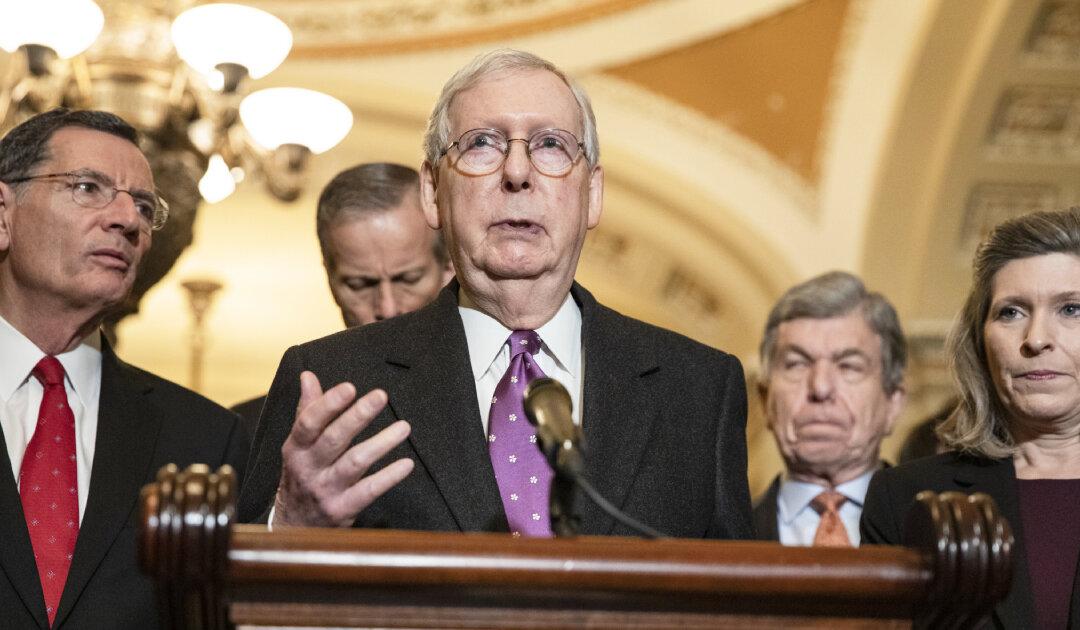Senate Majority Leader Mitch McConnell (R-Ky.) on Thursday criticized the coronavirus relief bill presented by Democrats in the U.S. House of Representatives, calling it an “ideological wish list.”
McConnell told the Senate that more limited legislation could be sought as he eyed the coronavirus relief bill unveiled by House Democrats on Wednesday.





